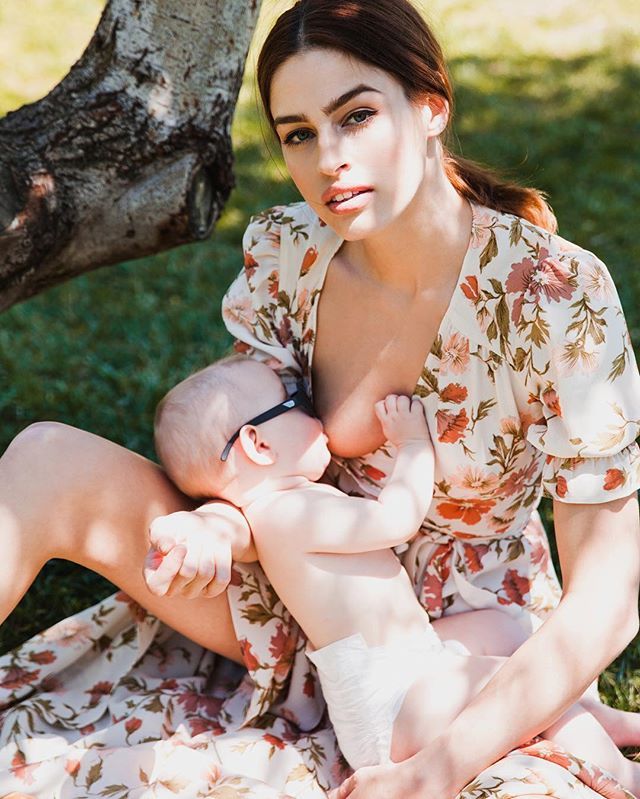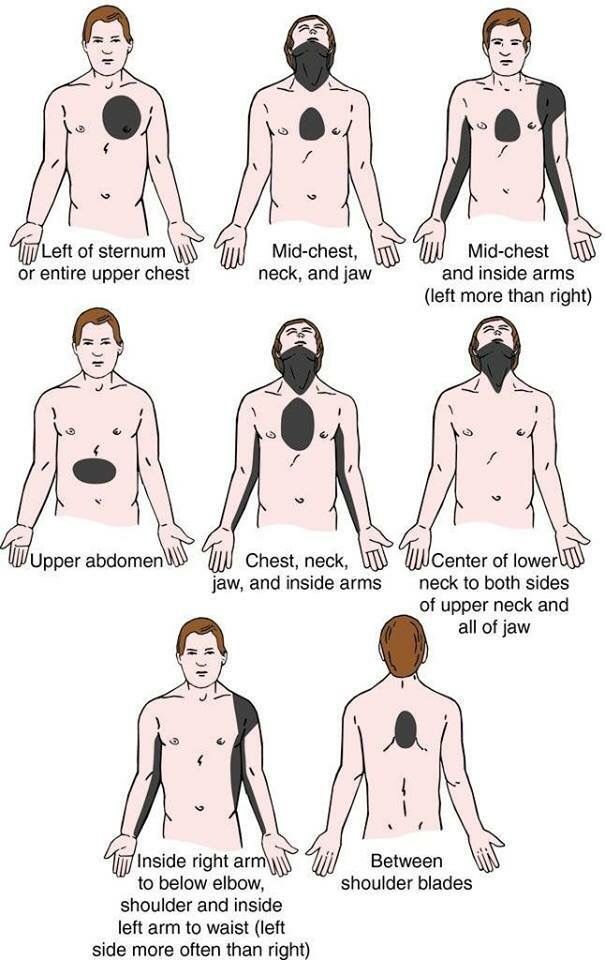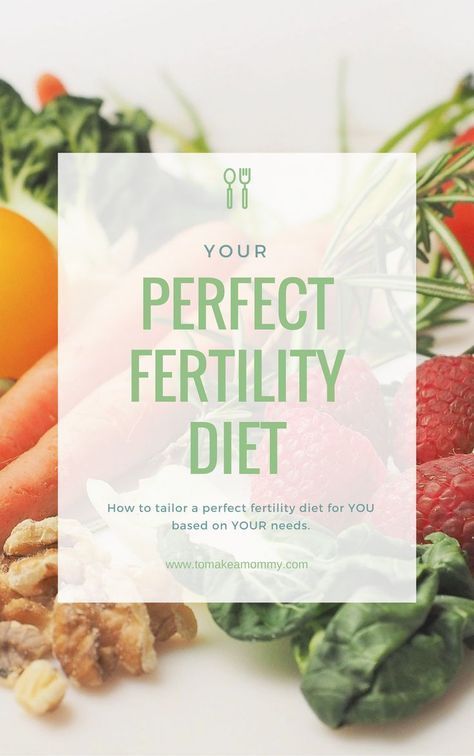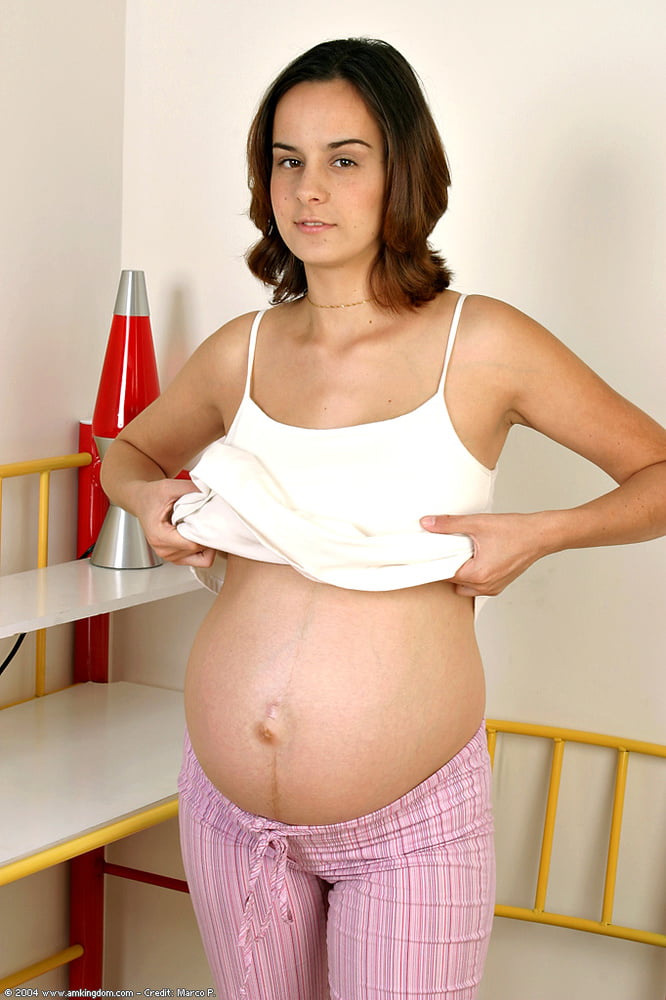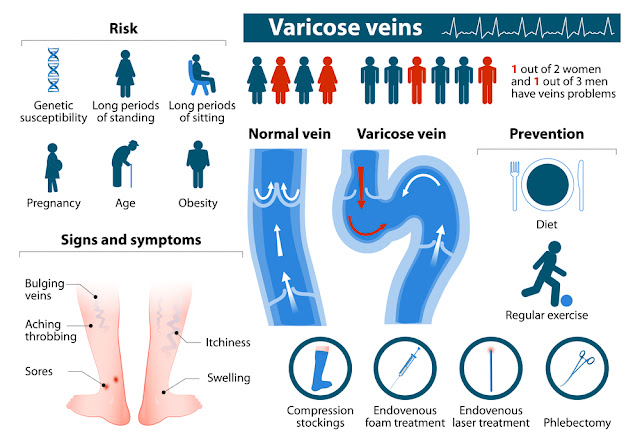Help for teenage parents
Helping Teen Parents and Their Children Build Healthy Futures
Teen parents have plenty of obstacles to navigate. Their kids will likely face some too.
The good news is that as a grandparent, there's a lot you can do to help.
It helps to be aware of the possible challenges your teenager may face as a parent. That way, you can help your child meet them head-on.
Challenges adolescent parents may face
Transitioning to parenthood. Becoming a parent isn't easy even when you're an adult with some experience behind you. For teens, it's even more difficult since they're not finished developing themselves. Your teen may feel isolated from and jealous of their friends. They could feel unprepared for parenthood. They might be anxious about their future.
Finishing school. Teen moms aren't as likely to graduate from high school or to go to college.
This can have a negative impact on their—and their children's—future.
Childcare. Finding safe, high-quality childcare may not be affordable.
Inexperience. Children have the greatest physical, emotional, and cognitive development during their first three years of life. This means the interactions they have with their parents and caregivers are crucial during this period. But because teen parents are young and inexperienced, they may not realize how much influence—good or bad—they have on their children's development.
Finding a job. It may be harder to keep or find a job that fits around school and parental responsibilities.
Earning enough money. Research shows that teen mothers tend to earn less than women who have children later in life. They're also more likely to experience poverty.
Negative perceptions.
 There are still negative stereotypes surrounding teen parents. People tend to see adolescent moms as sexually irresponsible and adolescent dads as uninvolved or absent.
There are still negative stereotypes surrounding teen parents. People tend to see adolescent moms as sexually irresponsible and adolescent dads as uninvolved or absent.Depression. Studies indicate that being a teen mother may increase the likelihood of mood disorders like depression. Young fathers are at a higher risk of becoming depressed too. This is probably partly due to factors like learning to become a parent, juggling responsibilities, and stress in relationships with family members, romantic partners, and/or friends. Stress and depression can also put adolescent parents at risk for substance use.
Repeat births. Around 17% of babies born to adolescents are repeat births. Having more than one child as a teenager can intensify the challenges of finishing school, earning enough money, and finding quality childcare. Repeat pregnancies are also associated with a higher risk of low birth weight and infant death.

Health risks of teen parenthood
Adolescent moms and their children have some unique health risks too. This is why it's so important for them both to be under the care of a pediatrician.
Research shows that pregnant teen moms are more at risk of having these complications:
The risks are higher for mothers under the age of 17 years. These complications also seem to be more common in teens that don't have proper prenatal care.
Children of teen parents have some higher risks too, including:
How to help
Yes, there are many challenges and risks involved with being a teenage parent. But as a grandparent, your love and support can make all the difference. Here are some ways to help your child so they can find a healthy, positive life path.
Get regular prenatal care
Seeing an obstetrician regularly helps both mother and baby stay healthy. It also lessens the risk for labor and delivery complications.
Watch out for signs of tobacco use, drinking, or taking drugs. Using any of these can harm the baby. Let your child's obstetrician know if you think these might be a problem.
Using any of these can harm the baby. Let your child's obstetrician know if you think these might be a problem.
Find parenting classes
It's a good idea to start classes during pregnancy so your child can learn how to take care of a baby before it arrives. Getting educated will also help your child manage the transition to parenthood more smoothly. And because parent-child interactions are so important, especially during the first three years, keeping up these classes benefits everyone.
Prioritize school
Encourage your child to get a high school diploma and then a trade school or college degree. This will give your child confidence and help them support their child.
Look into contraceptive education
Because teen moms are at a high risk of getting pregnant again, it's important that they know about their
contraceptive options. For instance, they can have an intrauterine device (IUD) or implant placed right after birth. This helps reduce the likelihood of a repeat pregnancy during adolescence.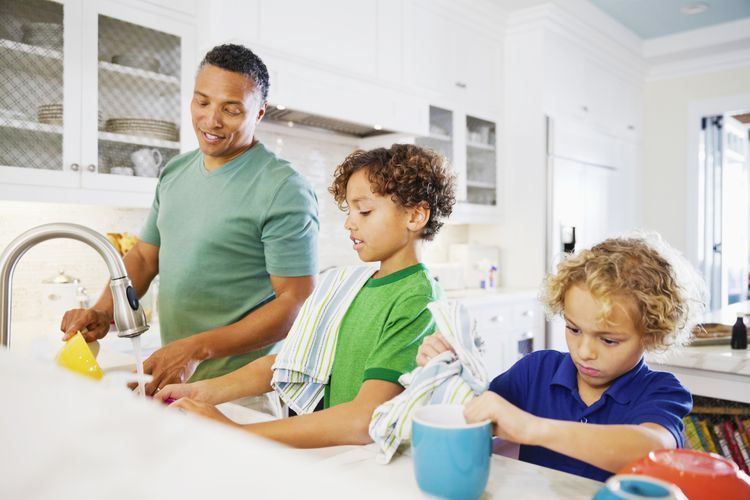 Both the IUD and the implant last for years (depending on the type) and are completely reversible.
Both the IUD and the implant last for years (depending on the type) and are completely reversible.
Support breastfeeding
Breast milk is the best nutrition for babies. In fact, the American Academy of Pediatrics and Centers for Disease Control and Prevention recommend that moms of any age exclusively breastfeed for the first six months. After that, it's best to keep breastfeeding along with introducing other foods until the baby is at least one year old. Not only does breastfeeding help mothers bond with their babies, but it also promotes cognitive development.
Breastfeeding classes and support help adolescent mothers breastfeed longer. Check with your child's pediatrician or obstetrician about breastfeeding resources like a lactation consultant.
Get involved with childcare
You and your child (and possibly the other parent and grandparents) will need to sort through how much of a role you will play in caring for your grandchild. You may need to get a social worker or counselor to help with this.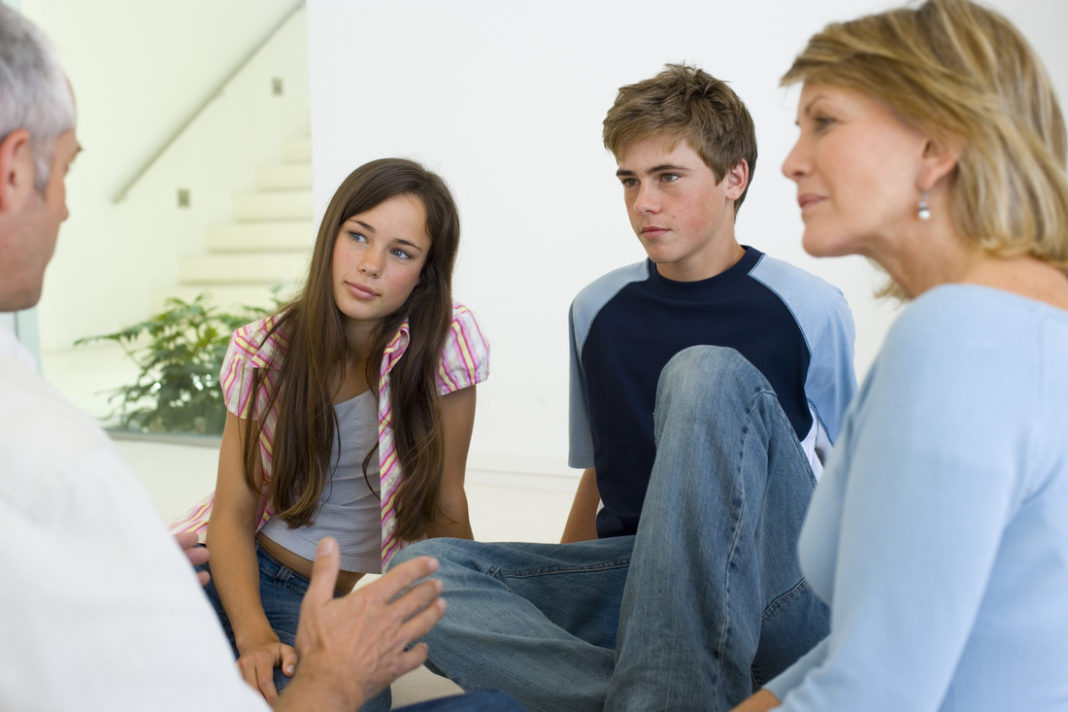
Don't be afraid to step in and help parent your grandchild if that works for your family. Studies show that coparenting, which usually involves maternal grandmothers, can have positive effects on both children and grandchildren. This is especially true if you and your child have minimal conflict. The less conflict there is, the more positive the coparenting experience is for everyone.
Promote positive parent-child relationships
No matter how you feel about your grandchild's other parent, remember that positive parent-child relationships are critical for healthy child development. For your grandchild's sake, try to encourage and support the other parent's role.
Research shows that when fathers engage with their children, they positively influence their kids' behavior, intellect, and mental well-being. Kids of teen moms who stay close with their biological father do better in school and at work. They're also less depressed, and their risk of becoming teen parents themselves is lower.
Even when fathers can't help support the baby financially, they can support them emotionally and physically. And the sooner they gets actively involved with their child, the more likely it is that they'll stay involved.
Encourage play and reading time
One of the best things young parents can do with their children is to play with them and read to them. Both of these activities promote bonding and boost young kids' social and cognitive development.
Visit your local library and check out Dolly Parton's
Imagination Library, which mails a free book every month to children from birth to age five, regardless of income.
Connect with community programs
There are many government and community programs and resources out there designed to help parents and young children, such as:
Home visiting programs
Tuition and childcare assistance programs
Counseling
Social workers
Job training programs
Transportation programs
Parenting and child development classes
Healthcare
Tutoring
Babysitting services
What's available depends on where you live. Check with your city, county, or state department of social services to start with. Your child's school may be another potential resource. It's possible you'll need to find services from a variety of
government and private resources, such as:
Check with your city, county, or state department of social services to start with. Your child's school may be another potential resource. It's possible you'll need to find services from a variety of
government and private resources, such as:
Temporary Assistance for Needy Families — Helps families with financial assistance and support services.
Child Welfare Information Gateway — Resources for parents and grandparents.
Early Head Start — Programs for kids under age 3 and pregnant women.
Nurse-Family Partnership — Connects first-time, low-income moms with a personal nurse.
Parents As Teachers — This home visiting program is for all families with young children.
Remember
Helping your child access these services can ease many of their burdens and paves the road to their success as a parent.
More information
- Caring for Teen Parents and Their Children
-
Care of Adolescent Parents and Their Children (AAP Clinical Report)
The information contained on this Web site should not be used as a substitute for the medical care and advice of your pediatrician.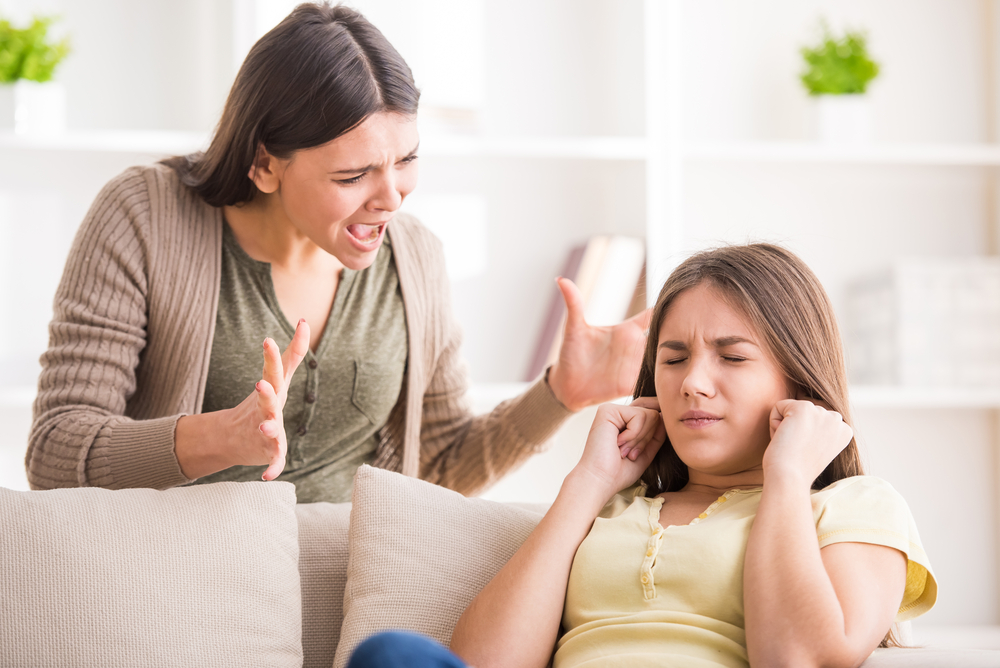 There may be variations in treatment that your pediatrician may recommend based on individual facts and circumstances.
There may be variations in treatment that your pediatrician may recommend based on individual facts and circumstances.
Supporting Pregnant and Parenting Teens
Pregnant and parenting teens often face challenges balancing their school, work, and home lives with being a new parent. Teen parents are at increased risk for dropping out of school, unemployment, poverty, mental health issues, and child care concerns. Ensuring that adolescent parents receive adequate social, emotional, medical, and academic support is essential to the parent and the baby’s future. On this page, find information on expectant and parenting teens in out-of-home care and ways to support them. Resources include State and local examples.
Addressing the Needs of Pregnant and Parenting Youth in Foster Care: A Primer on Interagency Collaboration for Children’s Bureau Grantees
Capacity Building Center for States (2019)
Explains the services offered to pregnant and parenting youth in out-of-home care by the John H. Chafee Foster Care Program for Successful Transition to Adulthood and the Adolescent Pregnancy and Parenting Program. This tip sheet provides strategies for using both programs together to improve outcomes for pregnant and parenting youth in out-of-home care.
Chafee Foster Care Program for Successful Transition to Adulthood and the Adolescent Pregnancy and Parenting Program. This tip sheet provides strategies for using both programs together to improve outcomes for pregnant and parenting youth in out-of-home care.
Challenges, Benefits Found in Providing Home Visiting Services for Pregnant and Parenting Foster Youth
Chapin Hall (2021)
Presents the results of a study that shows adolescent parents in foster care needing additional support, and one way to provide this support is through community-based home visiting programs. Outcomes from these interventions show positive effects in the areas of parent-child attachment, child and maternal health and development, parenting skills, and social support.
Connecting the Dots: A Resource Guide for Meeting the Needs of Expectant and Parenting Youth, Their Children, and Their Families
Center for the Study of Social Policy (2019)
Offers information on interventions and services for expectant and parenting youth involved with the child welfare system to help improve parent and child well-being outcomes.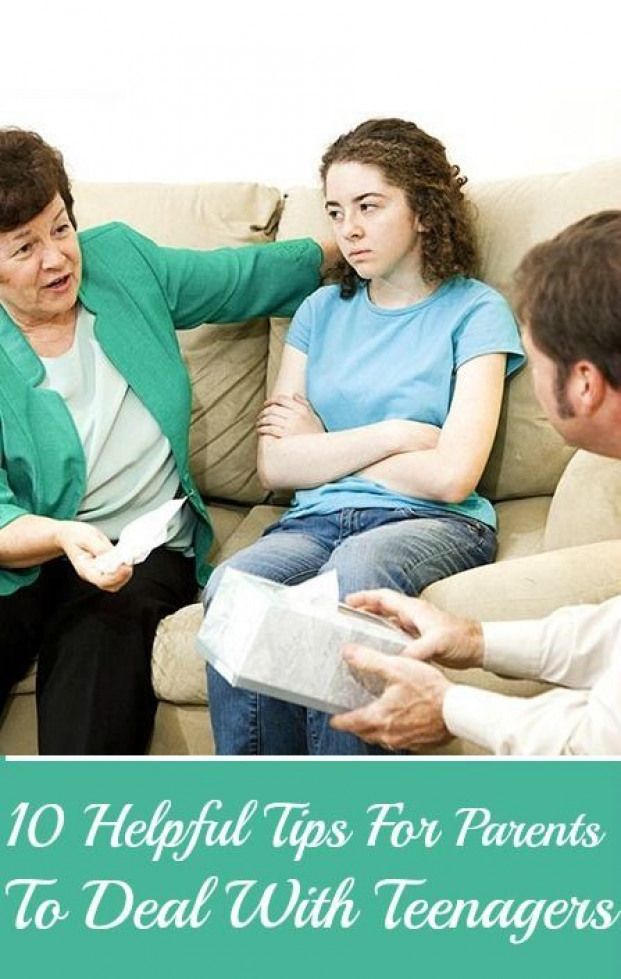
Helping Teen Parents and Their Children Build Healthy Futures
HealthyChildren.org (2017)
Discusses teen parenting, including how to prepare teens for parenthood, the importance of getting young fathers involved, what to expect in the future, and more.
Leveraging the Family First Prevention Services Act for Older Youth: Prevention Provisions
American Bar Association (2019)
Explains provisions of the Family First Prevention Services Act that will impact older youth, including the use of title IV-E funds to provide services to youth in foster care who are pregnant or parenting.
What Are Some Strategies for Supporting Pregnant and Parenting Teens in Foster Care?
Casey Family Programs (2018)
Examines challenges faced by child welfare agencies that are working with pregnant and parenting teens in foster care and discusses effective programs for this population that aim to ensure the healthy development of the teen parent and the child.
When Your Teen is Having a Baby
KidsHealth.org
Provides information for parents whose teens are pregnant or recently became parents. The website includes information on what parents may be feeling, what teens may be feeling, and special considerations for pregnant teens.
(Back to Top)
For Young Parents
ShiftNC
Shares information on the education and medical rights of pregnant and parenting teens in North Carolina who are currently in school. The resource also offers information on where teen parents can access support resources such as, finding child care, finding support groups, financial benefits, and recommendations to stay healthy.
Overview of Policies and Considerations for Case Managers Working With Foster Youth Who Are Parenting
Florida Institute for Child Welfare
Presents a guide for child welfare caseworkers in Florida on working with pregnant or parenting youth who are transitioning out of the foster care system.
Parent Connection
Family Services
Highlights the Parent Connection program in Wisconsin designed to support teen parents and their children that offers the following programs, Parents as Teachers for teen parents, teen parent mentoring program, fatherhood programs, and young parent group and workshops.
Pregnant and Parenting Youth
Washington State Department of Children, Youth & Families (2019)
Provides guidance to child welfare workers engaged with expectant or parenting teens to ensure a successful transition to adulthood.
Providing Home Visiting to Parents in Care: The Illinois Pregnant and Parenting Youth in Care Home Visiting Pilot Experience
Children’s Home & Aid
Describes a home visiting program in Illinois that serves pregnant and parenting youth in care and links to a full report on the outcomes of the pilot program.
Teen Parenting
Los Angeles County Department of Children and Family Services
Offers information on supports for pregnant and parenting teens, especially those involved with child welfare services, in L. A. County, California.
A. County, California.
(Back to Top)
How to help underage mothers
Main
The problem of underage motherhood is currently becoming more and more urgent. After the birth of a child, many young girls cannot independently withstand the load that has fallen on them.
The problem of underage motherhood is now becoming more and more urgent. After the birth of a child, many young girls cannot independently withstand the load that has fallen on them.
There are many different reasons why young girls take on motherhood. The cause may be promiscuous intimate relationships, rape, pregnancy as a solution to problems, desire, benefit, or simply psychological restructuring of the personality. In any case, early pregnancy is not always desirable. The inner circle of pregnant girls usually reacts quite sharply to their unusual situation.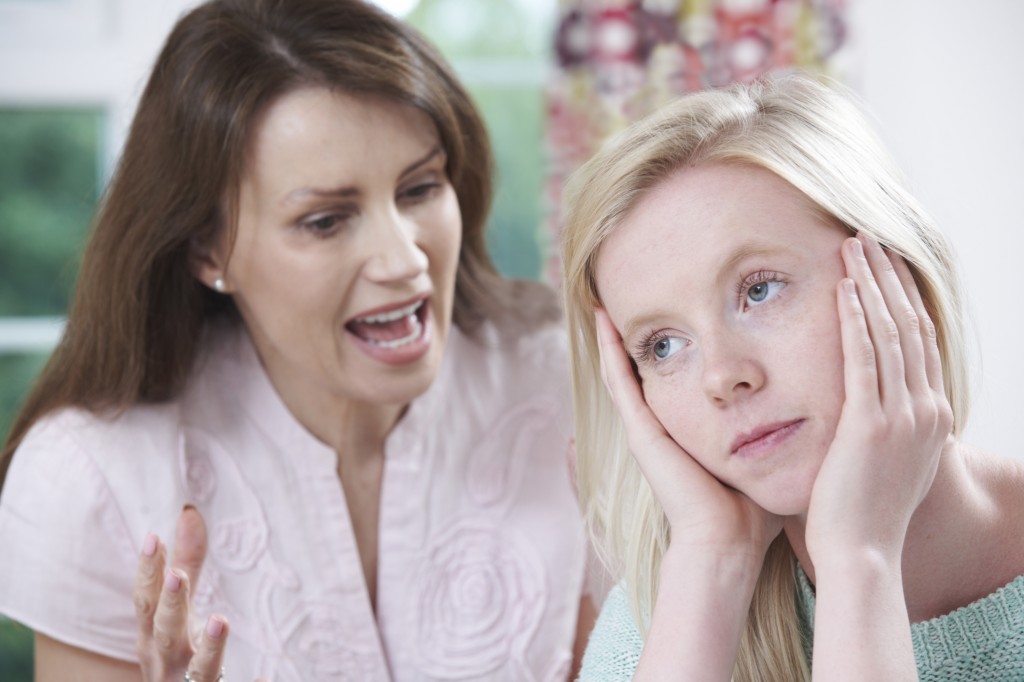 Underage mothers, getting into a situation of stress, need multidimensional support: psychological, medical, social and legal.
Underage mothers, getting into a situation of stress, need multidimensional support: psychological, medical, social and legal.
Psychological assistance
Psychological assistance includes counseling aimed at reducing the level of anxiety. Often young mothers are afraid that they will not be able to adequately raise a child or simply will not be able to ensure its existence. Psychological support is needed in order for the mother to feel that such an emotional state is characteristic of many women. You should not end the life of a child, relying on self-doubt. Group therapy is a common method of psychological assistance. It is intended for the exchange of experience, thoughts and useful recommendations. Such meetings can reduce the level of aggression of mothers to any environmental factors. Individual therapy also teaches self-regulation, the formation of maternal attachment, the development of the will.
Medical and social assistance
Medical and social assistance includes preparation for motherhood in the early stages of pregnancy. Usually such consultations are held on the basis of family planning centers, in antenatal clinics. This also includes preventive care. This type of assistance is carried out in order to preserve the health of the fetus. Preventive care also includes advice on child abandonment, as well as the identification of genetic diseases. The next stage of medical and social assistance is the provision of medical services directly during childbirth and the health of the newborn.
Usually such consultations are held on the basis of family planning centers, in antenatal clinics. This also includes preventive care. This type of assistance is carried out in order to preserve the health of the fetus. Preventive care also includes advice on child abandonment, as well as the identification of genetic diseases. The next stage of medical and social assistance is the provision of medical services directly during childbirth and the health of the newborn.
Social assistance
Social assistance for underage mothers can include a one-time allowance for the birth of a baby, maternity allowance (at least 40% of wages), allowance for caring for a child up to one and a half years, allowance for women who have embarked on registration no later than three months of pregnancy.
Legal assistance
Legal assistance consists of providing the necessary information about the rights and obligations of a minor girl as a mother.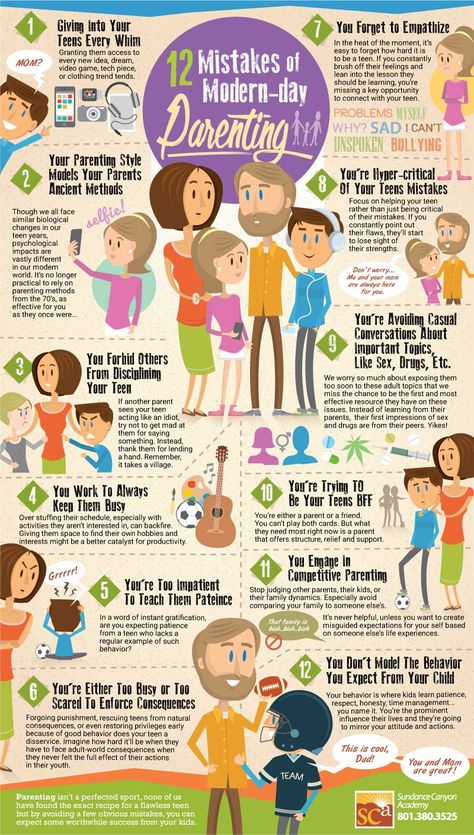 Also, the young mother is informed about what rights her child will have. There is a full familiarization with the Convention on the Rights of the Child and the Universal Declaration of Human Rights.
Also, the young mother is informed about what rights her child will have. There is a full familiarization with the Convention on the Rights of the Child and the Universal Declaration of Human Rights.
Social work with families of underage parents
Social work with underage parents, their families of origin and social environment in Russia is in its infancy. They receive some types of assistance from the state, but it is insufficient and not coordinated. The status of minor parents as clients of social work is not defined by law. Young parents in a difficult life situation may apply for assistance, but due to the fact that in law enforcement practice these norms of the law do not apply, they do not have the opportunity to fully use the services of social work. Specialists of educational and social institutions see the need to introduce measures of additional social support for minor parents. But in reality, specialists are not ready to help these families. They refer to the fact that at present there is no necessary regulatory documentation, no recommendations have been developed for providing assistance to this category, and specialists do not know the technologies for working with families of minor parents.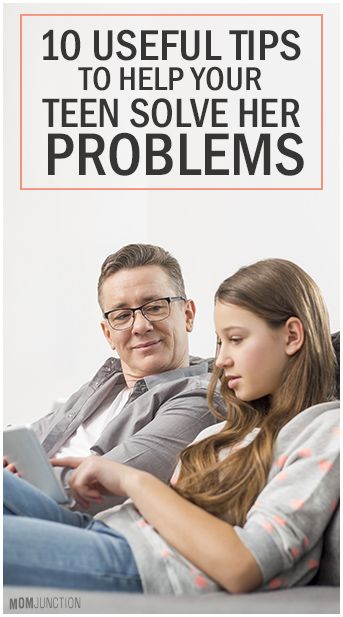 Specialists of social institutions define the status of young parents in different ways, since it is not specified in legislative acts, and therefore there are discrepancies. From the side of the state, these clients receive some types of assistance, but it is insufficient, uncoordinated and of a departmental nature.
Specialists of social institutions define the status of young parents in different ways, since it is not specified in legislative acts, and therefore there are discrepancies. From the side of the state, these clients receive some types of assistance, but it is insufficient, uncoordinated and of a departmental nature.
In Russia, programs are implemented at the regional level, while in the USA they have a federal status. In our country, shelters are represented only in large cities, in the United States they exist throughout the country. Abroad, minor parents are recognized and proclaimed as clients of social work at the federal level. In Russia, work in this direction has only just begun; at present, there are no necessary regulatory and legal documents. In the United States and in Russia, and in other countries, programs imply a declarative principle for young parents to apply for state assistance. This situation excludes potential clients who do not want to contact social services for one reason or another. Thus, the stage of prevention of family troubles, deviant behavior of parents practically falls out. It can be argued that families of minor parents do not seek to become clients of social work and use social services due to distrust of social services and social workers. This largely depends on the existing stereotypes in Russian society regarding social work, including psychological assistance. Abroad, a different point of view regarding social work is widespread in society, the label of trouble is not hung on the client, people who find themselves in a difficult life situation are more willing to cooperate with social services. In Russia, most programs and projects are developed in accordance with foreign experience and technologies of social work with these clients. In this regard, the services offered to young parents are the same, with a few exceptions. At the same time, such projects are not widely represented in the Russian Federation, for example, they are not available in medical and educational (secondary schools) institutions.
Thus, the stage of prevention of family troubles, deviant behavior of parents practically falls out. It can be argued that families of minor parents do not seek to become clients of social work and use social services due to distrust of social services and social workers. This largely depends on the existing stereotypes in Russian society regarding social work, including psychological assistance. Abroad, a different point of view regarding social work is widespread in society, the label of trouble is not hung on the client, people who find themselves in a difficult life situation are more willing to cooperate with social services. In Russia, most programs and projects are developed in accordance with foreign experience and technologies of social work with these clients. In this regard, the services offered to young parents are the same, with a few exceptions. At the same time, such projects are not widely represented in the Russian Federation, for example, they are not available in medical and educational (secondary schools) institutions.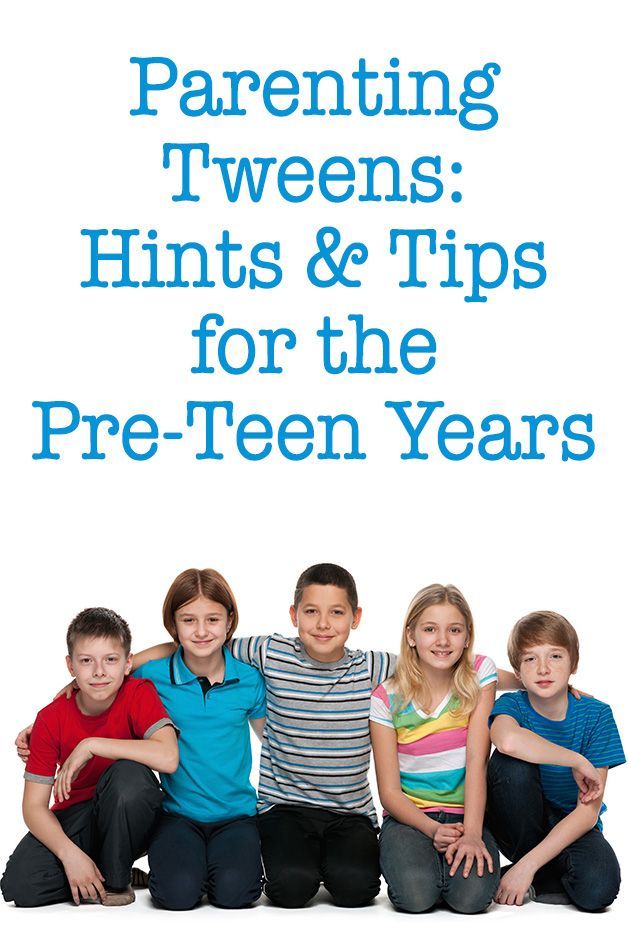 Abroad, social services are free or with partial payment. In Russia, young parents now have the opportunity to receive free assistance in state institutions. In Russia, minor parents who find themselves in a socially dangerous situation do not have the opportunity to receive material state support, since this is not provided for by the current legislation. In this regard, assistance to young parents and their children is provided on the basis of individual state institutions: family and child assistance centers, social rehabilitation centers for minors, social shelters for these clients. In addition, short-term projects and programs to help minor parents in state social institutions are being developed. These projects, as a rule, are sponsored by foreign companies, or they are developed and implemented on grants. Therefore, not all minor parents who find themselves in a difficult life situation can receive long-term qualified assistance. And short-term projects created on grants exist for a certain time, and often within the framework of these projects only a few families of underage parents who find themselves in a difficult life situation receive assistance.
Abroad, social services are free or with partial payment. In Russia, young parents now have the opportunity to receive free assistance in state institutions. In Russia, minor parents who find themselves in a socially dangerous situation do not have the opportunity to receive material state support, since this is not provided for by the current legislation. In this regard, assistance to young parents and their children is provided on the basis of individual state institutions: family and child assistance centers, social rehabilitation centers for minors, social shelters for these clients. In addition, short-term projects and programs to help minor parents in state social institutions are being developed. These projects, as a rule, are sponsored by foreign companies, or they are developed and implemented on grants. Therefore, not all minor parents who find themselves in a difficult life situation can receive long-term qualified assistance. And short-term projects created on grants exist for a certain time, and often within the framework of these projects only a few families of underage parents who find themselves in a difficult life situation receive assistance.
Every year in Russia there are 4-4.5 thousand women in labor under the age of 15, 9 thousand - 16-year-old mothers, and more than 30 thousand - 17-year-olds. [2]
There are no statistics on underage marriages, but according to Spread Your Wings, a charitable foundation for social assistance to children, 121 underage mothers participate in their Little Mom project.
An interview was conducted to determine the social needs of minor parents. Ten young parents took part in the survey, the average duration of one interview was 40 minutes. The study was conducted in 2016 in the city of Smolensk on the basis of the Spread Your Wings Charitable Foundation. All respondents are participants in the Little Mom project. The age of young parents is from 15 to 18 years; seven underage mothers are married, two live in cohabitation with the father of the child, one lives with a boyfriend who is not the biological father of the child. AT 9families have one child each, the remaining family has 2 children (one is 2 years old, the other is 1 year old)
The subject of the study is the problems of minor parents.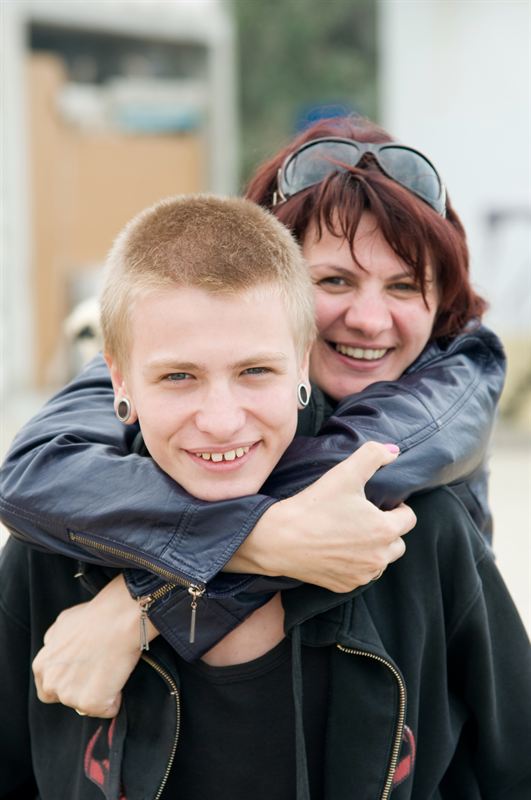
Objectives of this study:
- To study the main motives, factors, reasons and scenarios for young parents to enter the situation of underage parenthood;
- To identify the problems that arise during pregnancy and after childbirth in this category of citizens.
Main hypothesis: pregnancy and childbirth of minors give rise to additional problems of a social, psychological, material, housing and everyday nature. Young parents cannot independently, without the help of their immediate environment, social services, adapt to a new social role for them.
All interviewed young parents live with their families. No family has the opportunity to live separately. Currently, young families are supported by the parents of the spouses (material support, assistance in raising children, etc.).
Also to the question “Who can you turn to for help?” 6 respondents answered that they were going to the Spread Your Wings Foundation.
All girls have a secondary education, 6 fathers had to drop out of school or transfer to a correspondence department to go to work. Three girls are studying at the correspondence department in a vocational school, and only one is going to continue her studies and enter a university in the future.
Three girls are studying at the correspondence department in a vocational school, and only one is going to continue her studies and enter a university in the future.
The most common cause of early childbearing is accidental pregnancy. Girls did not protect themselves during sexual intercourse, hoping that their partner would use contraceptives. The underage mothers we interviewed stated that they did not use contraceptive methods and did not have sufficient information about their use.
At the same time, cases were revealed when girls wanted to give birth to a child and the pregnancy was planned and desired. “I wanted a baby. When I saw 2 stripes on the test, at first I was shocked, but then joy came” (K., aged 16)
Three underage mothers wanted to become pregnant and therefore did not use contraceptives. As the study showed, the girls wanted to give birth to a child and were sure that they would be helped. Thus, the girls considered themselves ready for the new role of motherhood for them.
Underage mother married to child's father (incentivized early marriage): “In September 2014, my boyfriend (already husband) said he wanted a child. We are no longer protected. In mid-December, I became pregnant” (A., aged 17). In this family, the young family is supported by the parents of the spouses, the girl continues to receive education by correspondence.
Young mothers are afraid of a negative reaction, condemnation of their parents, the father of the child. According to the respondents, they did not feel condemned by those around them (acquaintances, teachers, friends). “My parents were skeptical at first. Everyone asked if I was sure that I would not spoil my life with this, but then, when they realized that I was adamant in my decision to give birth, they began to help in everything. And my husband was extremely happy, even though we didn't plan it.” (O., age 18)
If the parents and partner of an underage mother support her decision to keep the child, the girl does not terminate the pregnancy.
In cases where underage mothers wanted to keep the child, but were afraid that their parents would force them to terminate the pregnancy, they concealed the fact that they were pregnant.
The girls made the decision to keep the child, because they believed that terminating a pregnancy was immoral, abortion is the murder of a child: “I never thought about terminating a pregnancy for a minute. If it happened, then it had to be so. You have to be able to take responsibility for your actions." (M., 17 years old)
Of no small importance for a girl's reproductive choice is her marital status - whether the girl is married or lives in cohabitation with the child's father. It is worth noting the fact that all responsibility for reproductive behavior rests with women. Often a girl does not advertise information about the father of the child, she tries not to touch on this topic in an interview.
Marital relations of underage mothers are stable. Only one underage mother does not maintain relations with the father of her child, but lives with another young man. “When I found out that I was pregnant, I immediately told him. And he put me before a choice: either I have an abortion, or he leaves. I didn’t even doubt it, I immediately decided that I would leave the child. ” (M., 17 years old)
“When I found out that I was pregnant, I immediately told him. And he put me before a choice: either I have an abortion, or he leaves. I didn’t even doubt it, I immediately decided that I would leave the child. ” (M., 17 years old)
To the question “How do you like to spend your time?” all unanimously answered that with the child and with the family.
Despite the fact that in 7 cases the pregnancy was unplanned and unwanted, after the birth of the child they did not abandon the child. According to T.A. Gurko, “the fact that the girls did not abandon the child can be regarded as a responsible position. The task of society is to help them and their children to successfully integrate into the social sphere. [1]
Respondents interviewed at Spread Your Wings do not consider their child a burden, have never regretted that they made such a choice and do not see any negative aspects of having a child. “What are the downsides? There can be no minuses, a child is one big plus” (V.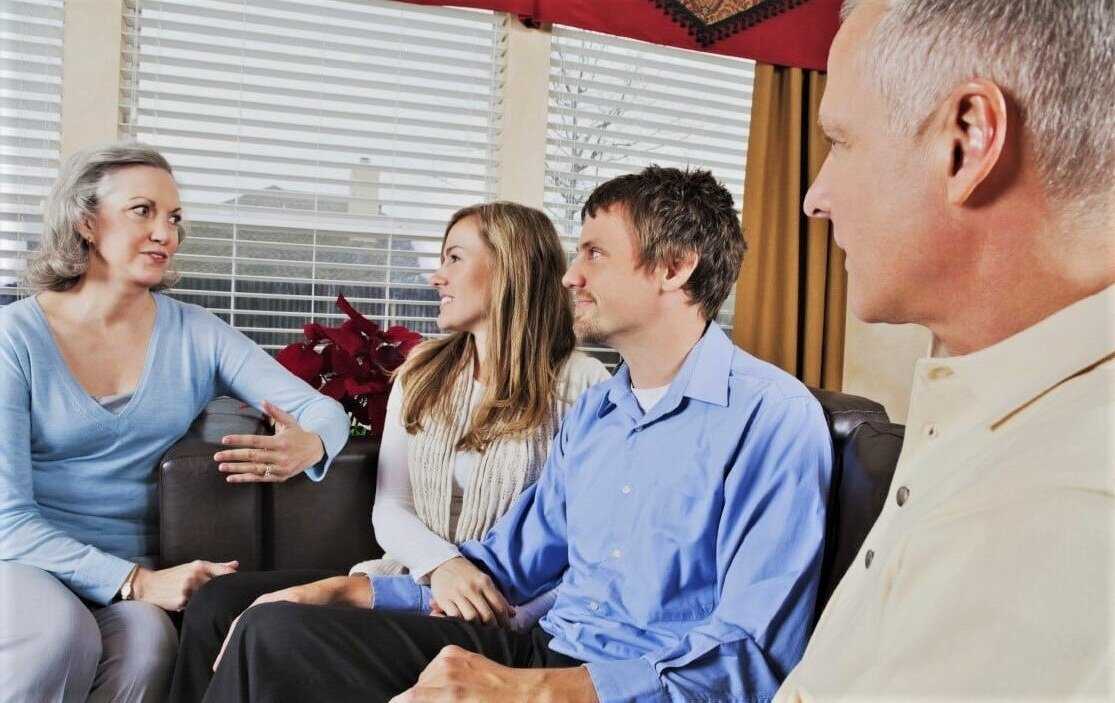 , 16 years old)
, 16 years old)
With the birth of a child, like any adult woman, a minor mother's needs, value orientations, communication, and activities change. For underage mothers, the lack of education, specialty, work (source of income) is typical. Girls, as a rule, do not have time to get a secondary education, they do not have the opportunity to get a job. In addition, they are economically dependent on their parents and immediate environment. The problematic situation lies in the discrepancy between their requests and available resources. “Money is sorely lacking. If it were not for the help of parents, I would have lived on the child allowance” (M., 17 years old)
The main problems that minor parents highlight are material and housing. « Of course, it's convenient to live with your parents, you can always ask to sit with the child, consult something, but I would like separate housing, because there are always disputes about the upbringing and feeding of the child. My husband’s mother constantly points out mistakes, it’s annoying, but there are no other options yet.” (C., 17 years old)
My husband’s mother constantly points out mistakes, it’s annoying, but there are no other options yet.” (C., 17 years old)
Half of the mothers surveyed said that they would be happy to get a job, but there was no one to leave their child with for a long time.
Assistance received by minor families from the state - child allowance. Families also receive some material assistance from the Spread Your Wings charity foundation - a one-time cash benefit at the birth of a child. The Foundation provides material assistance to families, also conducts seminars and classes for parents and their children, and provides legal assistance. In addition to this fund, minor parents no longer know where to turn for additional help.
The results of our study showed that pregnancy and childbirth of adolescent girls are included in a whole set of acute psychological, social and legal problems associated with raising a child, employment, education, profession. According to the specialists of the Spread Your Wings Foundation, all these families need material and psychological assistance.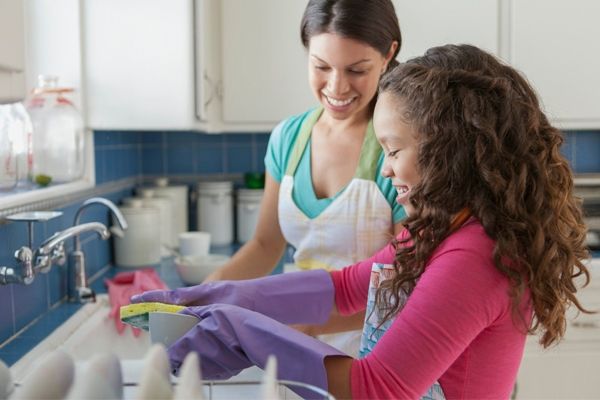 This is explained by the fact that most young parents have little material wealth, often below the poverty line.
This is explained by the fact that most young parents have little material wealth, often below the poverty line.
An analysis of the interviews with minor parents showed that they count on the support of their families and do not believe that social protection agencies will help them solve their problems. Most of the young parents had difficulties with the registration of child benefits.
According to our research, the necessary conditions have now been created for young women to obtain a certificate of compulsory secondary education. Today in Russia, pregnant teenage girls and teenage mothers are offered a choice of several forms of school education: transfer to home schooling, transfer to evening school, passing exams externally.
Young women living with their families often do not seek additional assistance from government agencies. This is due to the fact that the family of a minor mother simply does not know where she can get help.
All minor parents interviewed did not seek help from social institutions at their place of residence. At the same time, according to young parents, they need material, social, pedagogical, legal assistance from specialists.
At the same time, according to young parents, they need material, social, pedagogical, legal assistance from specialists.
On the basis of the study, it was revealed that only in large cities of the Russian Federation, single centers work with minor parents to provide them with specialized social support and assistance (Moscow, St. Petersburg, Yekaterinburg, etc.). Basically, these are “Little Mom” projects with the support of the international non-profit organization “Kidsave International” (St. Petersburg). On the periphery, young parents with children who find themselves in a difficult life situation are actually deprived of the right to help and support.
Since 2007, Russia has been implementing additional measures to help parents from the federal budget. The allowance for caring for the first and second child up to 1.5 years has been increased, mothers who have not worked before also receive allowances, and benefits have been introduced when paying for the services of preschool institutions. For low-income families, there is a system of regional child benefits, although they are also small. The main types of benefits for families with children are fixed in such regulatory legal acts as the Federal Law "On State Benefits to Citizens with Children" dated 19May 1995 No. 81-FZ, as amended. of December 22, 2005 (adopted by the State Duma of the Federal Assembly of the Russian Federation on April 26, 1995) [3] and Decree of the Government of the Russian Federation of September 4, 1995 No. 883 (as amended on June 10, 2005) payment of state benefits to citizens with children" (pregnancy and childbirth allowance; one-time allowance for women registered with medical institutions in the early stages of pregnancy; one-time allowance for the birth of a child; monthly allowance for the period of leave to care for a child until he reaches the age of one and a half years).
For low-income families, there is a system of regional child benefits, although they are also small. The main types of benefits for families with children are fixed in such regulatory legal acts as the Federal Law "On State Benefits to Citizens with Children" dated 19May 1995 No. 81-FZ, as amended. of December 22, 2005 (adopted by the State Duma of the Federal Assembly of the Russian Federation on April 26, 1995) [3] and Decree of the Government of the Russian Federation of September 4, 1995 No. 883 (as amended on June 10, 2005) payment of state benefits to citizens with children" (pregnancy and childbirth allowance; one-time allowance for women registered with medical institutions in the early stages of pregnancy; one-time allowance for the birth of a child; monthly allowance for the period of leave to care for a child until he reaches the age of one and a half years).
Minor parents are provided with additional benefits, in-kind assistance in the form of allocation of durable goods, they receive one-time, monthly and annual city cash compensation, which is indexed annually. In addition, a system of social contracts has been introduced, as a result of which, after completing a vocational training program, young parents are employed. According to these programs, a targeted approach is implemented in the payment of social benefits, subsidies and social services to young parents based on obtaining information about the client provided by the city institute of district social workers, based on municipal monitoring of the situation of such parents.
In addition, a system of social contracts has been introduced, as a result of which, after completing a vocational training program, young parents are employed. According to these programs, a targeted approach is implemented in the payment of social benefits, subsidies and social services to young parents based on obtaining information about the client provided by the city institute of district social workers, based on municipal monitoring of the situation of such parents.
In the Russian Federation, only in Moscow and St. Petersburg there is a practice of state support for young parents and legislative consolidation of the status of a social work client. As a rule, in other regions, the subjects of social work with this category of citizens are educational institutions and state bodies of social protection.
As possible technologies of social work with young parents in an educational institution, conversations, lectures by specialists, class hours are conducted, psychological assistance is provided, support from a social teacher, joint work of educational institutions, families, and society.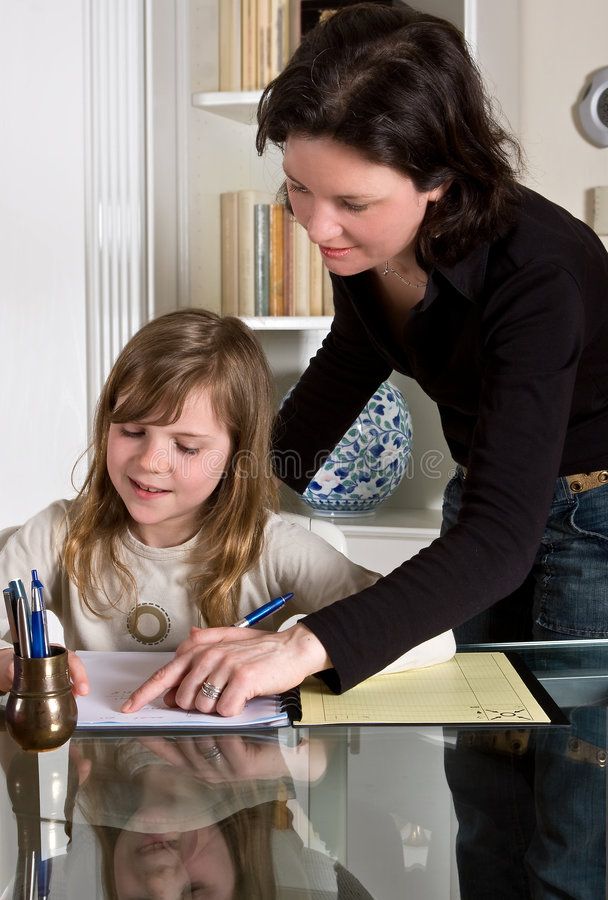
It also requires the development of special measures to support these clients: the creation of centers, departments where they could live with their child, study and work, and the introduction of foreign experience.
In this regard, there is a need not only to provide additional assistance to young mothers, but also to develop programs for the gender education of children and youth, and preventive work with young parents is necessary.
In Smolensk, underage parents can be assisted by state institutions: the Mlada family planning center, the Committee on Minor Affairs, the Narcological Dispensary, the psychological support center, the antenatal clinic, the helpline, and social protection departments
Lack of due attention to the problem of underage parenthood and informing this category of citizens about the allowances, privileges and assistance that they can receive and in which organizations gives rise to many problems. Material, housing and everyday problems are added to social and psychological problems, which leads to discord in family relations, which cannot but affect the child negatively.
